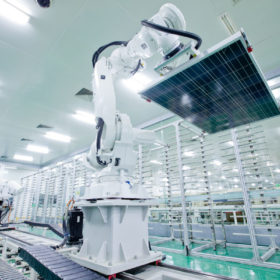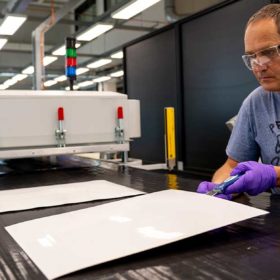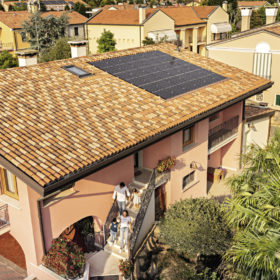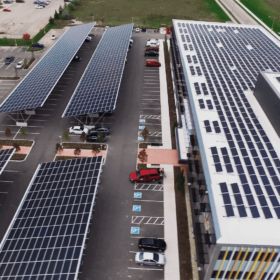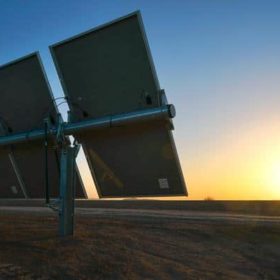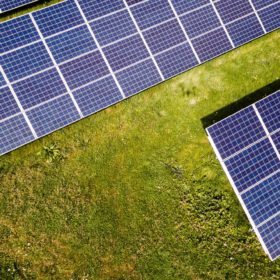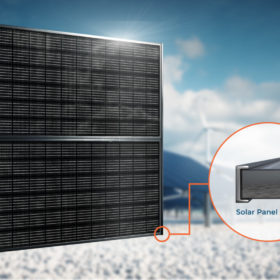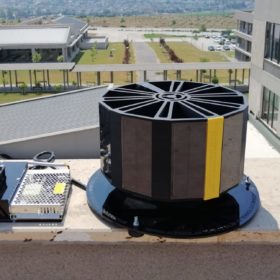The long read: A limit to PV module size
There is a threshold at which big becomes too big when it comes to PV module sizes, argues Hongbin Fang, the director of product marketing at Longi Solar. Fang recently said at pv magazine’s Roundtables USA event that despite size limits, there is still a lot of efficiency and cost-reduction potential to come.
German PV equipment providers keep recovering, but uncertainties remain
German engineering association the VDMA has reported increasing orders and sales for PV equipment suppliers in the third quarter. China accounted for around 80% of PV production equipment demand during the period.
Recyclable, back-contact solar panel from the Netherlands
Conceived by a Dutch consortium, according to Design for Recycling guidelines, the panel is being developed with two different encapsulants, one for the front of the module, which joins the glass and cells together; and a slightly different formulation for the back of the module, which attaches cells and backsheet together.
The long read: Reliance Industries’ fully integrated, end-to-end renewable energy ecosystem plans
India’s Reliance Industries sees the response to climate change as a huge opportunity to create value through a new energy and materials business. The company aims to set up a fully integrated, end-to-end renewable energy ecosystem.
U.S. decarbonization goals hinge on scaling up heterojunction cell tech
HJT technology could fill an innovation gap in the residential and commercial rooftop PV market, and boost U.S. solar leadership through domestic manufacturing of cells and modules.
American bank to lend $500 million for First Solar’s 3 GW fab in India
The debt finance from U.S. International Development Finance Corporation will support the thin-film solar manufacturer’s 3 GW/ annum module manufacturing facility coming up in Tamil Nadu.
Solex will have 1.2 GW solar module fab operational in January
The Gujarat-based solar manufacturer plans to have 1 GW of cells and 3.7 GW of module capacity operational in 2023.
Canadian BIPV module maker releases 790 W panel
Mitrex Integrated Solar Technology has developed a new solar panel with 19.5% efficiency that measures 2,036 mm x 1,992 mm x 40 mm and weighs in at 42 kg. It can operate with a system voltage of 1,000 V and has a power temperature coefficient of -0.36% per degree Celsius.
Shirdi Sai Electricals signs MoU with German firm to build 4 GW solar fab
German engineering and consulting firm Viridis.iQ GmbH will assist in conceptual design to construction and commissioning of the 4 GW vertically integrated poly-to-modules solar factory.
Photovoltaic rotary energy system for domestic applications, high-rise buildings
Developed by scientists in Turkey, a system prototype has operated at lower PV module temperatures and removed most of the dust accumulation. The researchers are now planning to improve the device by applying MPPT converter topologies.

